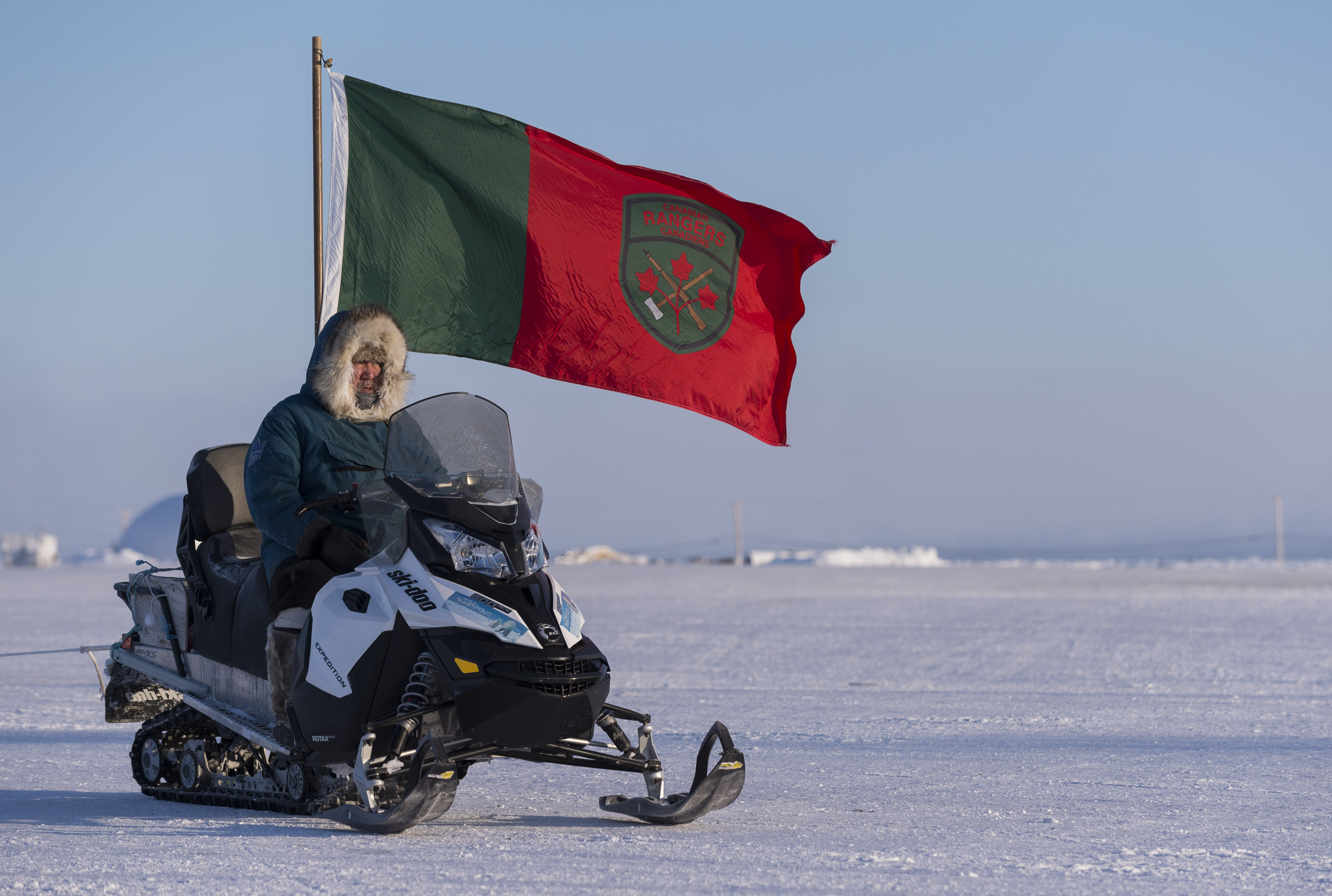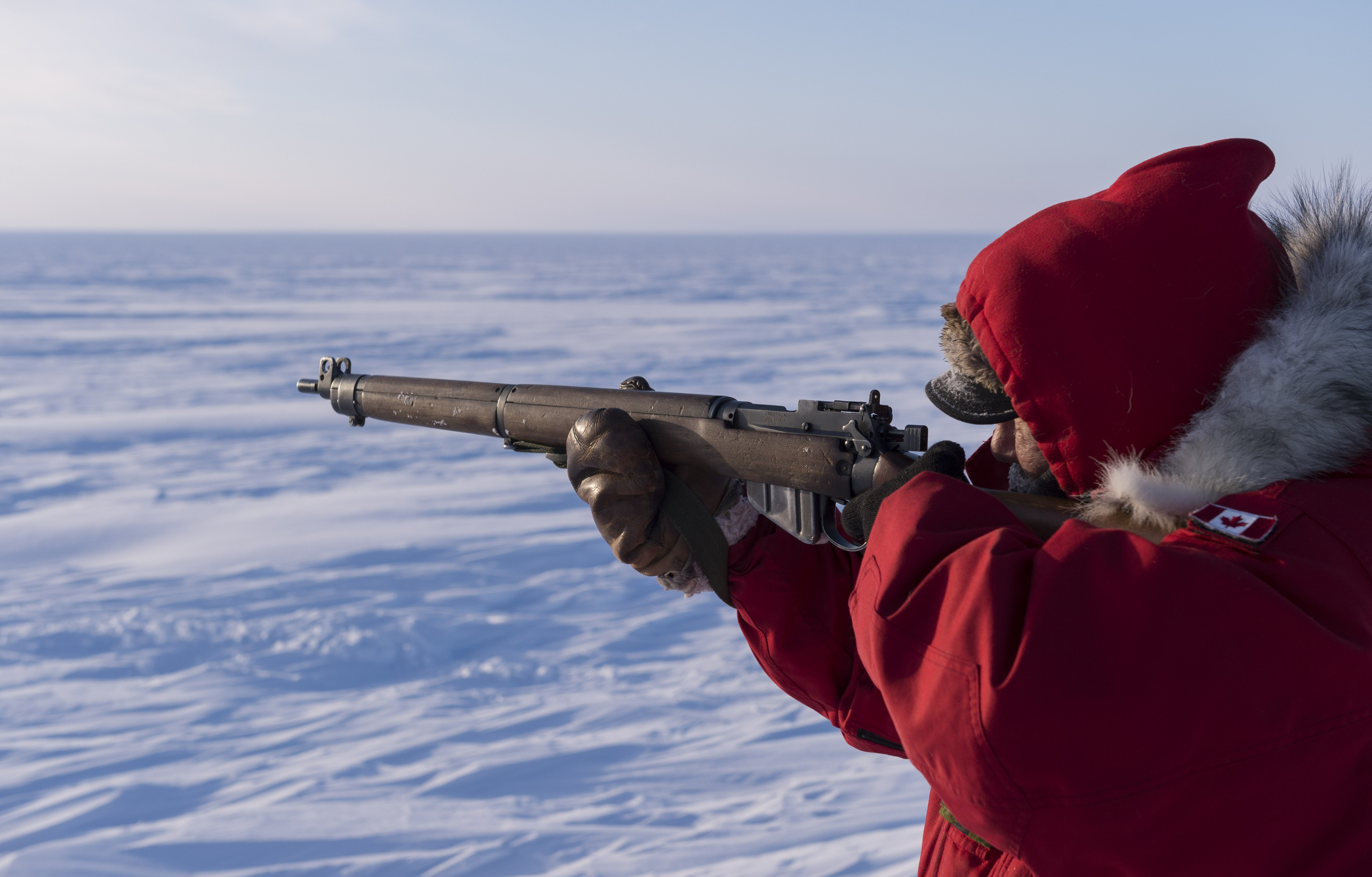
Master Corporal Enoki Irqittuq from 1 Canadian Ranger Patrol Group on patrol during Operation Nunalivut at Hall Beach, Nunavut, in February 2017. [Sgt Jean-François Lauzé, Task Force Imagery Technician]
The military ombudsman did. And in a second interim report on the challenges they face, Gary Walbourne says the 5,000 volunteers who form Canada’s first line of defence in the Arctic are waiting too long for compensation and reimbursement.
Often referred to as the eyes and ears of the North, the predominantly aboriginal reserve force faces challenges almost unheard of in the age of high-speed transportation and electronic communication.
The Rangers operate in the vast expanse of the Canadian Arctic, the very ideal of challenge and adventure, yet they are hampered for the most mundane of reasons—the inability to obtain a quick signature, a shortage of computers, a lack of office access.
Bureaucracy is doing what wind, snow, cold and terrain could not. It’s posing a barrier to the rugged men and women whose patrols take them across vast stretches of windswept tundra and far out onto the frozen sea.
“There are concerns worth reporting about the delays in reimbursements of claims for loss of or damage to personal equipment,” reports Walbourne. “This is because the impact of the delays extends beyond the individual ranger—it can be felt throughout the community.”
The Canadian Rangers are expected to “provide lightly equipped, self-sufficient mobile forces in support of the Canadian Armed Forces’ sovereignty and domestic operation tasks in Canada.” They are issued weapons, pants, red sweatshirts, combat boots, baseball caps, safety vests and navigation aids.

A Canadian Ranger from 1 Canadian Ranger Patrol Group fires a Lee-Enfield rifle on a range near Hall Beach, Nunavut, during Operation Nunalivut in February 2017. [Sgt Jean-François Lauzé, Task Force Imagery Technician]
Rangers can make claims if personal possessions are lost or damaged during operations. In the meantime, however, they may not be able to hunt or fish, critical parts of their livelihoods.
Walbourne reports that the Directorate of Compensation Benefits Administration in Ottawa takes between 8.5 and 17 weeks to reimburse such claims. The reasons are several, says the ombudsman:
- Access is still a problem, particularly for communities only accessible by air. This only serves to further complicate the already complex military bureaucracy by slowing virtually every step of the process—from reporting to obtaining signatures and quotes for damaged parts or equipment to reimbursements themselves.
- Incomplete and/or inaccurately filled-out paperwork is another issue. Rangers speak 26 dialects and serve in more than 200 communities. The largest unit is the 3,400-member 1st Canadian Ranger Patrol Group, covering 40 per cent of Canada’s landmass. Walbourne reports there is no standard operating procedure for filling in and submitting claims and no accessible offices.
In his first interim report in January, Walbourne said that Rangers are not getting appropriate access to health-care services and lack sufficient support staff.
CBC News reported that 49 Canadian Rangers and Junior Rangers died between 2011 and 2015. Walbourne launched a review of the program more than a year ago, looking into issues such as health care, fitness and injuries.
The Department of National Defence has said only one of the 49 deaths was service-related, attributing the rest to “health and hazard issues common in the larger population of the communities in which they live—such as accidents like drowning and health-related causes like heart disease and diabetes.”
Advertisement




















